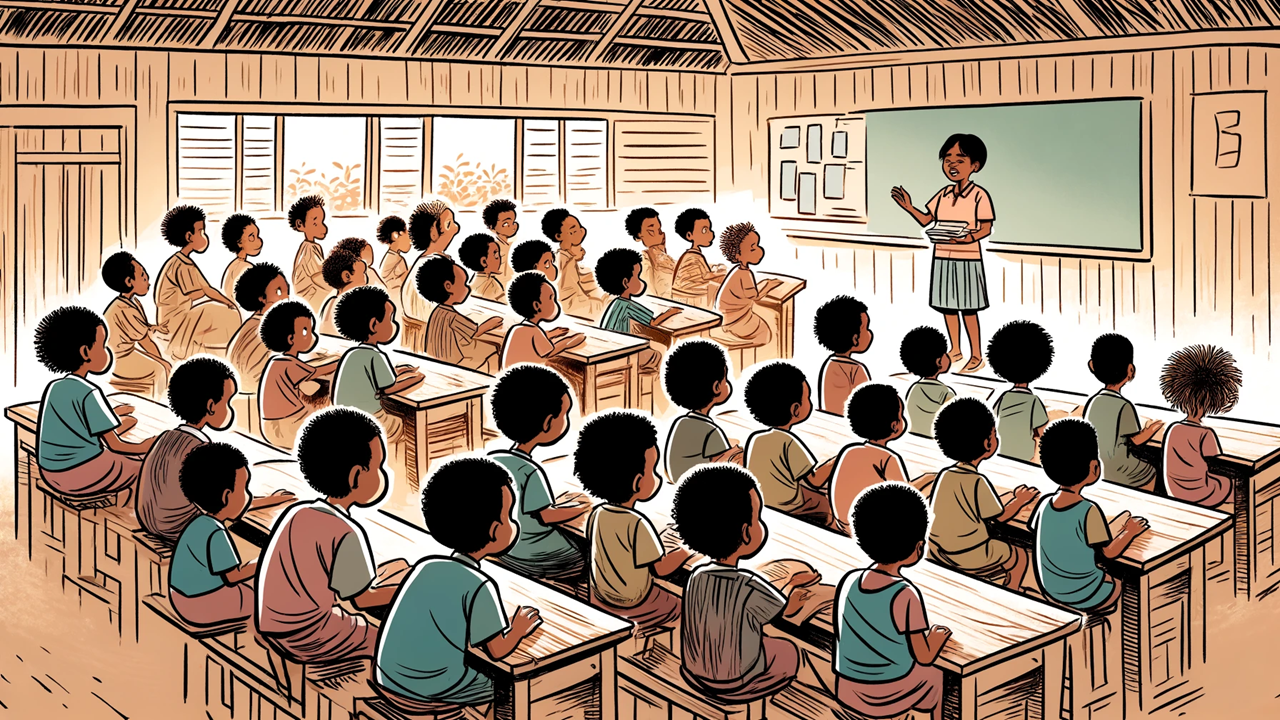World Bank’s $100M LEAP Project to Transform Early Education in Papua New Guinea
“This major investment gives real momentum to the PNG Government’s efforts to strengthen the education system,” said Hon. Lucas Dekena, Minister for Education.

- Country:
- Papua New Guinea
Papua New Guinea (PNG) is embarking on a groundbreaking journey to reform its education system with the launch of the Learning Enhancement and Access Project (LEAP)—a transformative initiative aimed at reaching over 375,000 children, improving teaching quality, and modernizing learning environments across the country’s most underserved regions.
Backed by US$100 million in financing from the World Bank’s International Development Association (IDA), LEAP is one of the largest education investments in PNG’s history, representing a substantial step toward addressing learning poverty and ensuring inclusive, equitable, and quality education for all.
Bridging Gaps in Literacy and Access
Despite efforts over the years, PNG continues to face significant challenges in education. Alarmingly, 72% of 10-year-olds cannot read or understand age-appropriate texts, and only 18% of youth aged 20 to 24 have completed secondary or some tertiary education. These numbers underline the urgency behind LEAP, which supports the government’s long-term goal of achieving universal basic education from elementary to grade 12 by 2050.
“This major investment gives real momentum to the PNG Government’s efforts to strengthen the education system,” said Hon. Lucas Dekena, Minister for Education. “Since 2022, we’ve leveraged our strong partnership with the World Bank and the Government of Australia to deliver our ambitious National Education Plan.”
Expanding Infrastructure and Supporting Teachers
LEAP will be implemented in 3,500 schools across eight provinces, directly benefiting 43% of students from preparatory to grade 2. Key interventions include:
-
Upgrading classrooms and facilities to ensure safe, inclusive, and gender-sensitive learning spaces
-
Equipping schools with high-quality teaching materials and structured lesson plans
-
Strengthening school management systems to enhance local accountability and oversight
-
Transforming 200 secondary schools into digital education hubs, providing internet access and tools to support neighboring schools
-
Training and upskilling 9,000 teachers, including at least 500 educators who will receive diploma-level qualifications
These efforts aim not only to improve learning outcomes but also to create employment opportunities in the education and digital infrastructure sectors, thereby contributing to broader economic development.
Catalyzing Early Learning Reform
LEAP is set to transform early-grade learning, especially in reading and mathematics. With more than US$80 million allocated to improving teaching practices, the project will deliver measurable outcomes by increasing the proportion of grade 2 students achieving minimum proficiency in core subjects.
“By investing in teachers, classrooms, and materials, we are helping turn PNG’s youth into a driving force for long-term growth and development,” said Khwima Nthara, World Bank Country Manager for Papua New Guinea. “This large-scale investment can transform early learning in PNG.”
The project’s focus on evidence-based teaching, continuous professional development, and real-time classroom support will help standardize the quality of education across the country, especially in hard-to-reach communities.
Addressing Gender, Safety, and Equity
LEAP goes beyond academic achievement. It addresses learning poverty, fragile service delivery, and gender-based violence, with targeted interventions for girls and children in conflict-affected or remote areas. By creating safer, more supportive learning environments, the initiative will:
-
Encourage higher school retention rates, especially among girls
-
Promote gender equality in access and learning outcomes
-
Build community resilience and trust in public education institutions
A Foundation for the Future
LEAP reflects the growing recognition that education is not only a human right but also a foundational pillar for economic and social progress. As the country pushes forward with its National Education Plan, this initiative signals a new era of data-driven, community-focused, and equity-centered education reform.
The project is fully aligned with global education priorities under the UN Sustainable Development Goals (SDG 4) and national aspirations for inclusive and lifelong learning.
With implementation led by the Papua New Guinea Department of Education, LEAP promises to leave a lasting legacy—empowering a new generation of learners and laying the groundwork for a stronger, more equitable future.









